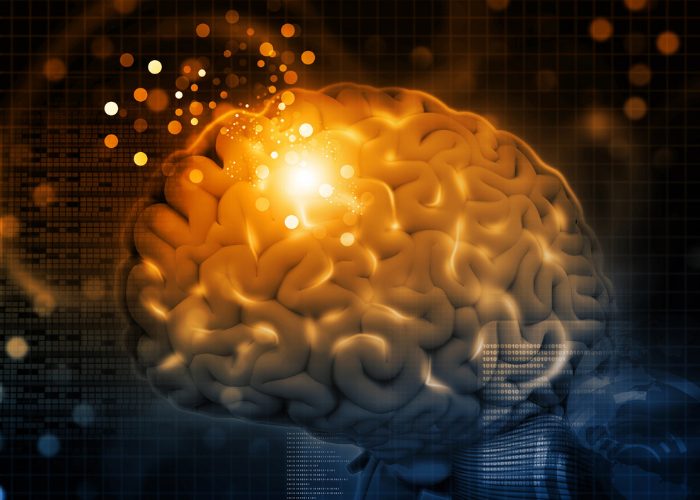Dreams have fascinated the human race for as long as they’ve been a part of our sleeping hours. Many people use dream interpretation in many ways, from predictions of the future to religious experiences. The diversity of accounts about dreams and the variety of plausible accounts make them a stunningly-interesting topic for study. One such field is the relation between dreams and health — specifically, how dreams can reflect your health.
Sleep disorders associated with dreaming and the sleep cycle are common indicators of deeper psychological and biological problems that need to be addressed. In this article, we’re going to discuss some of the surprising things that dreams can reveal about your health, as well as how to improve sleep quality by responding to these common dream markers.
What Are Dreams?

Dreams are images, stories, and emotions that occur involuntarily in the mind during the stage of REM sleep.[1] There are many explanations as to why we dream and different psychological theories give dreams different significance. For example, from a psychodynamic point of view, our dreams may represent our unconscious urges and desires.[2] They may serve to process information received during the day, or they may simply be a way of interpreting arbitrary signals from the body and the brain during sleep. In addition, dreams could hold a certain level of importance and may potentially be able to give insights into the state of our health and, by paying attention to them, we may be able to improve our lives in some way – either psychological or biological.
Recent research suggests that the content of dreams could predict looming disruptions to physical health. It is reasonable to assume that changes in the body occur undetected, before the onset of serious detectable symptoms of disease and infection. If this is the case, it is reasonable that the body detects these changes and informs the brain subconsciously, which manifests in dreams.
In this way, your body can represent the early warning signs of illness to you through your dreams before you can consciously feel the problem. “There are nerves coming to the brain from every part of the body—and they relay the signals of impending illness that the subconscious translates into dreams.” [3]
One example of dreams that precede illness is a dream whereby you’re struck by lightning, only to wake up with a migraine. In this case, the body appears to be recognizing and interpreting real pain in the fictional context of the dream. While it has historically been believed that dreams cause pain like this, it is more likely that the dream is a symptom of migraines. There have been several reported cases of dreams such as this which link illness directly to the imagery within dreams.
In more bizarre cases, dreams relate to your initial experience of a previous illness, often foreshadowing further injury. For example, one man suffered severe inflammation of the eyes while holidaying in Egypt. 10 years later, he experienced a series of dreams about his time in Egypt, before suddenly suffering the onset of the same condition[4].
Cases like these demonstrate that being aware of your dreams and their content may be helpful in predicting oncoming illness. This means that a close reading of your dreams can give you the opportunity and knowledge to begin working to prevent illness before it happens, or catching it in the early stages to reduce symptoms.
Acting Out Your Dreams

Research has confirmed that physically acting out dreams (called Rapid Eye Movement Behavior Disorder), combined with violent and aggressive nightmares is a strong predictor of the later development of neurodegenerative disorders such as Alzheimer’s and Parkinson’s. These are common diseases in the United States and have a serious negative effect on your quality of life as you age. However, catching these diseases early provides opportunities to mediate symptoms and develop treatment strategies to reduce their effect.
In those suffering from REMBD such dreams may be present up to 10 years before the onset of major symptoms. In the dreaming (REM) phase of sleep, our bodies are paralyzed, and our muscles are relaxed, which prevents us from moving our arms and legs around violently. Those with RBD however are known to be very active during sleep and may often shout[5]. These are obvious signs and can provide the warning necessary to seek professional help and insulate yourself from the onset of degenerative brain disease.
Both RBD and Parkinson’s are associated with inflammation and dopaminergic deficit in the brain. Prospective research has established that those who experience RBD have an 80% risk of developing neurodegenerative disorders like Parkinson’s in later life[6]. This is a significant risk, but the 20% of individuals who avoid these developments are likely to be differentiated by lifestyle factors – if you can develop an awareness of your own dreams and self-medicate with diet and lifestyle, your chances of healthy aging improve drastically.
This has huge implications for understanding and treating Alzheimer’s, which is currently an untreatable and unstoppable disease once actual symptoms have set in. If these symptoms sound familiar, it may be useful to keep a record of and pay attention to your dreams!
How Reliable is Dream Interpretation & Science?

While dream interpretation and science has a long and venerable history in theoretical psychology and psychoanalysis, it is only recently that it has developed as a genuine scientific field of study. Prior understanding of dreams were based on metaphysics and speculation: it is not a good idea to gamble your health on these foundations!
Hard science of dream prognosis is new and needs to be explored further with new fMRI technology before any solid conclusions can be drawn. It is important to remember that every individual is different and experiences different dreams in a different manner[7].
For many of us, dreams are meaningless or simply don’t occur, making them a difficult tool to use for the analysis of health and wellbeing. If you have dreams like those discussed above, however, it may be beneficial to contact a medical professional about your concerns for further testing.
It may be very difficult to use the experience of specific dreams experienced by individuals to predict illness in others. The symptoms of conditions like REMBD tend to only be notable after onset of illness as most people do not realize, or cannot understand, the significance of their dreams. Dreams are often abstract and have disjointed meaning, as well as being easily-forgotten upon waking. It may be beneficial to keep a dream journal if you have the time and enthusiasm for this project, but for many it will be hard to “decode” dreams, especially when they are presumed to have little or no meaning.
There is also no reliable method for deciding which dreams are significant at predicting illness and which are not. It may be sensible to ignore most dreams and focus on those with recurring elements, particularly poignant imagery, or those which involve damage or illness being suffered.
Dreams and Psychological Health

While it may seem less urgent than your physical health, you may have more luck linking your dreams to your mental health. Depression affects up to 25% of Americans under 25 and is a real problem for all age groups. Various personality disorders have been noted as public health concerns, with many Americans suffering from some form of mental health complication during their life.
As mentioned above, dreams are closely linked to the subconscious and are thought to proceed from anxiety, stress, and anticipation of the future. In this way, a close reading of dreams may be far more productive in estimating your psychological state, with a focus on identifying themes that are causing mental unrest. If you are experiencing recurring dreams, or recurring elements within separate dreams, there are likely underlying stresses and anxieties that are manifesting in dreams.
While prior attempts to analyze the significance of individual elements or archetypes in dreams has failed, there are some great ways that you can make use of your dreams as a guide to self-discovery. Keeping a dream diary is a great way to do this if you have the time, and can be as simple as noting key themes and characters.
Once you have a sufficient amount of dreams logged, look at the commonalities among your dreams and spend some time meditating on your relation to the characters and how the “story” might be an analogue for your own life. While dream science is far from specific, and there are no direct parallels between dream elements and life elements, these are not necessary.
The important way to make the most of your dreams is to consider them as an invitation inside your own head. Dreams are not a guide to life, but a signpost that there may be unresolved tensions in your personality and anxieties that need to be addressed. Being mindful of the content of your dreams is the first step, after which some serious self-interrogation is necessary to get to the core of the problem.
Summary: What Should You Do Now?

Dreams are a complicated experience where your brain relays uncommon types of information to itself. This is a strange biological mechanism and the presence of vivid images in the head makes it unsurprising that it has consumed so much human energy and thought. These dreams are indicative of your physical and psychological state, as well as acting as a potential warning system for serious health problems.
We can’t draw direct parallels now, and there is no certain way to interpret dreams, but a prolonged sleep disorder like REMBD is a great example of how dreams and sleep are intimately linked to health and aging. If nothing else, this shows that dreams CAN present you with important information about your body and mind.
When discussing the surprising things dreams can reveal about your health, there are novel applications for mental health. Consistent, recurring elements and narratives in your dreams may indicate anxiety and stresses, and act as an amazing signpost for the direction that introspection and reflection should take.
It is easy, in the fast-paced modern era, to ignore dreams as the ramblings of the brain to itself. The fact is that this is a short-sighted approach and ignores how these stories you tell yourself while you sleep are also stories about yourself and your life. Take the time to pay attention to dreams and, even if you don’t catch the first signs of serious illness, you may learn a lot about yourself!

Action Steps: Tips for Self-Awareness and Making the Most of Your Dreams
- Keep a dream log
- Note recurring themes
- Raise any serious concerns with your medical professional
- Look for parallels between your life and your dreams
- Spend some time reflecting on the themes of your dreams, and what they might be telling you about yourself
References
- [1] “Dream”. The American Heritage Dictionary of the English Language, Fourth Edition. 2000.
- [2] https://www.medicalnewstoday.com/articles/284378.php
- [3] (Kasatkin, 1967, cited in Van de Castle, 1994)
- [4] Manaceïne, deM. “Sleep: Its Psychology, Pathology and Hygiene.” Scott, Contemporary Science Series, London (1897)
- [5] “Addressing REM sleep in parkinsons disease”. Neurology Advisor. <http://www.neurologyadvisor.com/neurodegenerative-diseases/rem-sleep-behavior-disorder-parkinsons-disease-neurodegenerative/article/435337/ >
- [6] Postuma, Ronald B., et al. “Identifying prodromal Parkinson’s disease: Pre‐Motor disorders in Parkinson’s disease.” Movement Disorders 27.5 (2012): 617-626. < http://onlinelibrary.wiley.com/doi/10.1002/mds.24996/full >
- [7] Hartmann, Ernest. Dreams and nightmares: The new theory on the origin and meaning of dreams. Plenum Trade, 1998. < http://psycnet.apa.org/psycinfo/1998-06345-000>








